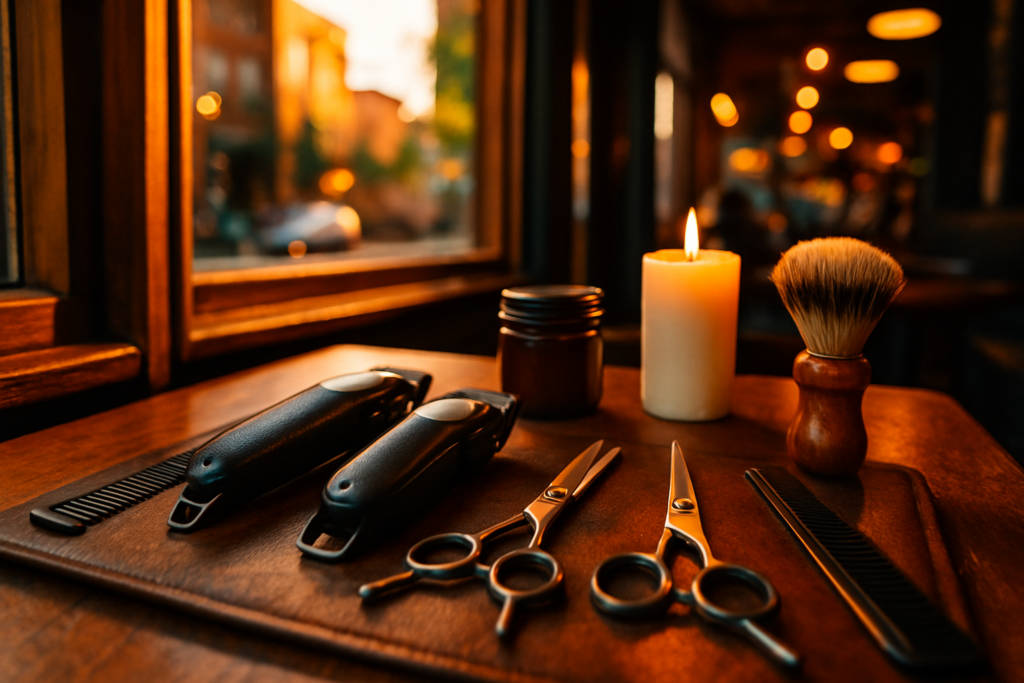Understanding Your Hair Type
Recognizing your hair type is crucial for effective hair growth. Different hair types, including straight, wavy, curly, and coily, need specific care routines.
Straight Hair
Straight hair tends to be oily since the natural oils travel down the shaft easily. Frequent washing helps manage this oiliness. Avoid heavy conditioners that might weigh down your hair.
Wavy Hair
Wavy hair has a mix of straight and curly properties. It’s prone to frizz. Use lightweight products and avoid excessive heat styling. Opt for sulfate-free shampoos to maintain natural texture.
Curly Hair
Curly hair often needs more moisture. It’s prone to dryness and requires deep conditioning treatments. Use leave-in conditioners and avoid brushing dry curls to reduce breakage.
Coily Hair
Coily hair is the most delicate and requires intense moisture. Use creamy conditioners and oils to lock in hydration. Avoid tight hairstyles that might cause tension and breakage.
Essential Hair Care Tips
Achieving long, healthy hair involves adopting consistent care practices. Proper maintenance can prevent damage and promote growth.
Regular Trims
Trimming hair every 8-12 weeks prevents split ends from traveling up the hair shaft. Even though it feels counterintuitive to cut while growing, it ensures healthier, less prone-to-breakage strands. For maximum efficiency, see a professional stylist who can trim hair more evenly.
Effective Shampoo and Conditioner Use
Choose a shampoo and conditioner tailored to your hair type. For those with oily hair, use a clarifying shampoo to remove excess oil. For dry hair, a hydrating shampoo and a deep conditioner can provide needed moisture. Apply conditioner mainly to the ends to avoid weighing down the roots. Ensure thorough rinsing to prevent product buildup, which can hamper growth.
Nutrition and Diet
The right nutrition and diet can significantly impact hair growth. Consuming specific nutrients promotes stronger and healthier hair.
Nutrient-Rich Foods
Incorporating nutrient-rich foods into your diet is essential for hair growth. Proteins, vitamins, and minerals all contribute to hair health.
- Protein-Rich Foods: Eggs, chicken, fish, and legumes like lentils provide proteins crucial for hair structure.
- Vitamins: Vitamin A promotes sebum production, found in carrots and spinach. Vitamin C aids collagen production, available in citrus fruits and strawberries. Vitamin E enhances blood circulation, contained in nuts and seeds.
- Minerals: Iron from red meat and lentils helps carry oxygen to hair roots. Zinc from pumpkin seeds and chickpeas supports repair and growth.
Hydration Importance
Hydration is vital for maintaining scalp and hair health. Drink at least 8 glasses of water daily.
- Scalp Hydration: Keeps the scalp hydrated, reducing dryness and flakiness.
- Hair Moisture: Supports the overall hair shaft moisture, preventing brittleness and breakage.
Optimizing your diet with these nutrients and maintaining proper hydration can accelerate the hair growth process naturally.
Protective Hairstyles

Incorporating protective hairstyles helps reduce hair breakage and promotes healthier growth. Here are key points to consider under this topic.
Low-Manipulation Styles
Low-manipulation styles, such as braids, twists, and buns, reduce stress on the hair. By minimizing daily styling, these styles help prevent breakage and thinning. For example, box braids keep hair neatly tucked away, protecting the ends and reducing friction.
Avoiding Heat Damage
Heat styling tools, like flat irons and curling wands, can cause significant damage if overused. Opting for protective styles means less reliance on these tools, allowing hair to retain moisture and strength. When using heat, always apply a heat protectant spray to create a barrier against the high temperatures.
Recommended Products
Having the right products is vital for growing out your hair. Select items that match your hair type and requirements for optimal results.
Hair Growth Oils
Hair growth oils provide essential nutrients to your scalp and hair follicles. One effective option is castor oil, known for its high ricinoleic acid content which promotes growth. Argan oil, rich in antioxidants and fatty acids, nourishes and hydrates. Rosemary oil stimulates blood circulation to the scalp, encouraging growth. Use these oils directly on your scalp weekly for maximum benefits.
Strengthening Shampoos and Conditioners
Strengthening shampoos and conditioners help reduce breakage and fortify your hair. Look for shampoos with biotin and keratin to strengthen hair strands. For conditioners, choose products with ingredients like hydrolyzed proteins and panthenol that enhance moisture and elasticity. Use sulfate-free varieties to avoid stripping natural oils. Try products from brands like Olaplex or Redken, known for their strengthening properties, to support healthy, long hair.
Patience and Consistency
Patience is vital for growing out hair. Hair typically grows about 0.5 inches per month, so significant length changes take time. It’s essential to be consistent with hair care routines to see real progress.
Consistency involves regular trims, even when trying to grow longer hair. Trimming every 8-12 weeks prevents split ends, which can travel up the hair shaft and cause breakage.
Maintaining a balanced diet contributes to sustained hair growth. Incorporate protein-rich foods, such as eggs and fish, to provide the building blocks for strong hair. Vitamins and minerals from vegetables, fruits, and nuts repair and sustain growth over time.
Daily scalp massages with oils like castor oil or coconut oil stimulate blood circulation, promoting hair growth. Using these oils as part of a weekly routine can strengthen hair roots.
Avoid frequent use of heat styling tools. If heat styling is unavoidable, always apply a heat protectant spray to shield hair from damage. Frequent heat exposure can weaken hair and impede growth.



 Product Review Expert
Marta is the product guru of the team, with a keen eye for discovering the best hair care products available. She meticulously tests and reviews shampoos, conditioners, styling tools, and treatments to give readers honest, in-depth insights. Marta’s expertise ensures that only the highest quality products are recommended, making her reviews an essential guide for anyone looking to invest in their hair care routine.
Product Review Expert
Marta is the product guru of the team, with a keen eye for discovering the best hair care products available. She meticulously tests and reviews shampoos, conditioners, styling tools, and treatments to give readers honest, in-depth insights. Marta’s expertise ensures that only the highest quality products are recommended, making her reviews an essential guide for anyone looking to invest in their hair care routine.
